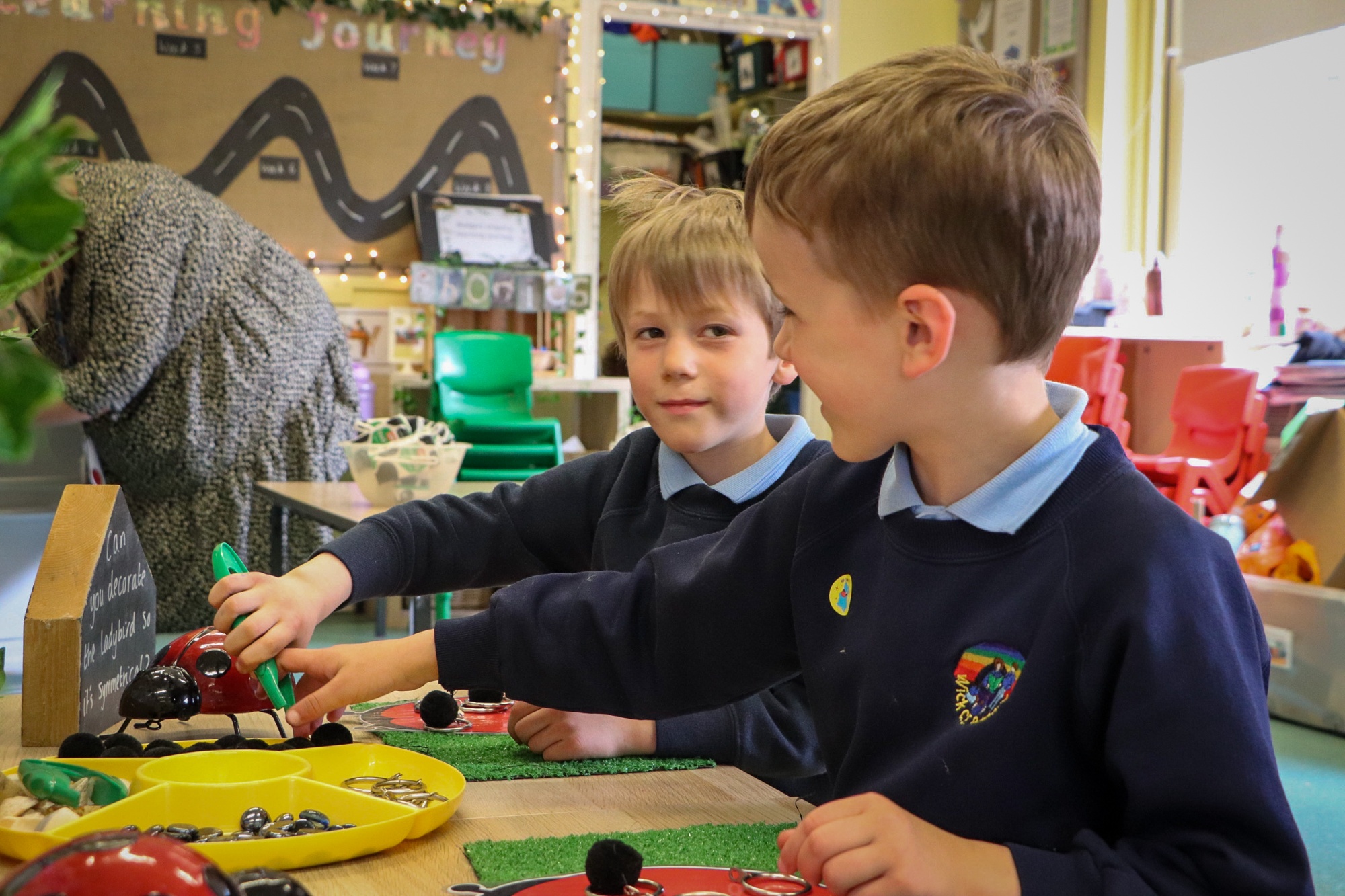Being a Mathematician

White Rose and Mastering number present learning using small steps and these are used to provide sequences of progressive lessons. The children are taught through whole-class interactive teaching where the focus is on all children working together on the same lesson content at the same time using the ‘I do, We do, You do, (You do again)’ approach of which Rosenshine’s principals are at the forefront. Outside of the actual mathematics lessons; children in years 1-6 complete a ‘You do again’ task that reviews and consolidates previous learning as well as promoting the fluency of all four operations.
Embedding fluency of key concepts is fundamental, therefore in addition to EYFS and Year 1 using mastering number, year 2 and 3 use this scheme, up to four times per week, to continue to develop their sense of number and calculation. Furthermore, to ensure fluency in multiplication and division, step counting is used daily in year 1 – 6. Both mastering number and step counting provide excellent opportunities to take learning deeper and using the basic concepts children have the opportunity to apply and enhance their fluency. Times tables knowledge is also supported by the use of Times Tables Rockstars and regular 5-minute retrieval tasks.
Our approach to teaching means that all the children are on a journey together, allowing no child to be left behind. To ensure this, quality first teaching is at the heart of our approach and uses many of Rosenshine’s principals to ensure a high standard of delivery. Learning is reviewed daily in order to be reactive to the children’s needs. Small group and 1:1 intervention is built in to minimise the risk of any child falling behind. This enables any gaps to be closed and that children are ready to progress to the next concept. For a few of our children, a recognised intervention which is backed up by research may be used. Similarly, children with SEND may have specific needs pertaining to their mathematics learning identified on their pupil passports, which are reviewed 3 times per year.
How we evaluate ou learners as mathematicians?
